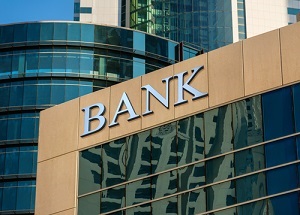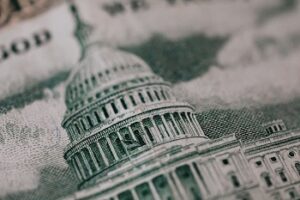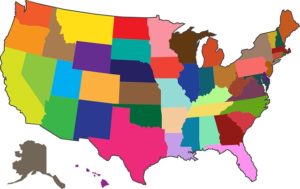Money Laundering and Related Financial Institution Fraud
 Corrupt government actors who have profited from bribes and other wrongful conduct want to spend their ill-gotten gains. So do kleptocrats, drug dealers and other criminals. Individuals and entities subject to U.S. economic sanctions want to make purchases on the global markets and protect their ill-gotten gains. In order to shield their dirty money and access global markets, these bad actors take advantage of offshore banking in jurisdictions offering financial secrecy – including the U.S. – and engage in money laundering to cover their financial tracks.
Corrupt government actors who have profited from bribes and other wrongful conduct want to spend their ill-gotten gains. So do kleptocrats, drug dealers and other criminals. Individuals and entities subject to U.S. economic sanctions want to make purchases on the global markets and protect their ill-gotten gains. In order to shield their dirty money and access global markets, these bad actors take advantage of offshore banking in jurisdictions offering financial secrecy – including the U.S. – and engage in money laundering to cover their financial tracks.
Money launderers use financial institutions to make their dirty money appear clean, often using opaque and multi-layered corporate structures. Banks and other financial institutions are subject to a number of laws and regulations designed to prevent and detect money laundering. Financial institutions that fail to comply with these anti-money laundering (AML) rules are subject to criminal and civil liability. Whistleblower rewards may be available to those who report violations of AML laws and regulations.
Money laundering enables criminals and fraudsters to reap the benefits of their crimes. Money laundering, therefore, overlaps with other wrongdoing, and AML efforts are critical to helping governments stop crime, tax evasion, bribery, and terrorist financing. Whistleblowers who come forward with information about violations of anti-money laundering rules not only help protect the integrity of our financial systems; they also make it harder for criminals to profit from their crimes.
Blowing the Whistle on Money Laundering, Sanctions Violations, and Kleptocracy
- What are Money Laundering Techniques?
- Anti-Money Laundering Laws and Regulations
- What Financial Institutions are Covered by AML and Sanctions Laws & Regulations?
- Enforcement of AML and Sanctions Laws and Regulations
- Blowing the Whistle on Money Laundering and Sanctions Violations
- Contact an AML Whistleblower Lawyer
What are Money Laundering Techniques?
Money laundering moves ill-gotten or illegal funds into the financial system in a way that makes it difficult to detect or, later, trace, the source and nature of the funds. Money laundering can involve:
- Concealment of beneficial ownership through use of anonymous shell companies with no real operations or nominee accounts;
- The use of offshore accounts in jurisdictions with permissive financial regulations including laws allowing account secrecy;
- Structuring transactions to break up large amounts of money into multiple smaller transactions;
- The use of cryptocurrency and high-value commodities;
- The purchase of real estate and other high-value items such as artwork;
- The use of money services businesses and other un-regulated or less-regulated financial instruments and money processors including prepaid access cards and remittance services.
Anti-Money Laundering Laws and Regulations
U.S. and other laws aim to stop unlawful money laundering by regulating the actions of financial institutions. In the U.S., the Bank Secrecy Act and related regulations (“Title X”) require U.S. financial institutions to comply with anti-money laundering (AML) requirements. First passed in 1970, the BSA has been amended and strengthened many times over the years.
The fundamental requirement of AML compliance is the adoption and implementation of internal controls, which include comprehensive customer due diligence (CDD) policies, procedures, and processes. Financial institutions must follow know your customer (KYC) rules, and the risks presented by those customers, so that they can identify, detect, and evaluate unusual or suspicious activities.
Entities subject to the BSA must generally:
- Monitor, report, and keep records on suspicious activities including cash purchases of negotiable instruments and cash transactions exceeding $10,000 (CTRs);
- Submit suspicious activity reports (SARs) for activity that might signify money laundering, tax evasion, or other criminal activities;
- Have an AML compliance program, including policies and procedures reasonably designed to achieve compliance;
- Have a customer identification program (CIP) reasonably designed to verify the identity of natural persons as beneficial owners of legal entity customers through customer due diligence;
- Perform due diligence on foreign correspondent accounts and other foreign or private transactions; and,
- Share information with law enforcement.
In addition to BSA requirements, U.S. persons including financial institutions are required to comply with economic sanctions programs administered by the Office of Foreign Assets Control (OFAC). OFAC maintains lists of sanctioned countries and persons whose property is subject to blocking and with whom U.S. persons cannot conduct business. It also administers country-based trade restrictions. OFAC rules require covered financial institutions to block accounts and transactions that are held or used by, or on behalf of, sanctioned individuals and entities.
What Financial Institutions are Covered by AML and Sanctions Laws & Regulations?
A broad range of “financial institutions” are subject to AML and sanctions laws and regulations, although the exact nature of requirements can vary depending on the type of financial institution. Covered financial institutions include any person or entity acting within the U.S. as:
- A bank, including any commercial bank, trust company, private bank, savings and loan association, thrift, or credit union;
- Branches and agencies of foreign banks;
- A money services business, including those engaged in currency exchange, check cashing, traveler’s checks, money orders, prepaid access services, and money transmission;
- A broker or dealer of securities subject to registration under the Securities Exchange Act;
- A mutual fund subject to registration under the Investment Company Act;
- A futures commission merchant or an introducing broker subject to registration under the Commodity Exchange Act;
- Other non-bank financial institutions including casinos, real estate businesses, precious metal dealers, and more.
Money laundering is international in scope, with illicit cash regularly crossing borders. Foreign financial institutions are subject to many U.S. AML regulations, and U.S. financial institutions are subject to specific rules regarding handling of funds from foreign financial institutions.
U.S. citizens and residents are also required to report their financial interest in or authority over foreign bank accounts above specific values by filing Foreign Bank Account Reports (FBARs) with the IRS.
Enforcement of AML and Sanctions Laws and Regulations
In the U.S., breaches of AML rules and sanctions violations can result in regulatory enforcement actions, civil and criminal actions, asset seizure, and forfeiture. The Department of the Treasury’s Financial Crimes Enforcement Network (FinCEN) is charged with administering the Bank Secrecy Act, and OFAC administers and enforces economic and trade sanctions laws.
Other federal regulators are charged with overseeing entities under their jurisdiction. For example:
- The Securities and Exchange Commission (SEC) regulates the securities markets and has direct regulatory and oversight responsibilities of securities exchanges, securities brokers and dealers, investment advisers and investment companies, and self-regulatory organizations (SROs).
- The Commodity Futures Trading Commission (CFTC) administers and enforces the federal futures and options laws as set forth in the Commodity Exchange Act.
- Federal banking regulators including the Board of Governors of the Federal Reserve System, the FDIC, the Office of Comptroller of the Currency, and the National Credit Union Administration also have jurisdiction over different financial institutions.
- The Internal Revenue Service has jurisdiction over the imposition of penalties for BSA violations regarding the reporting of foreign bank accounts.
- Criminal, civil, and forfeiture actions for violation of AML rules can also be brought by the Department of Justice.
Liability can arise in circumstances ranging from a reckless disregard of legal requirements for compliance programs and sound business practices to willful blindness in the face of information that suggests probable money laundering.
Penalties for AML and sanctions violations can be substantial. Per-violation penalties add up quickly, and enforcement agencies can also impose additional civil monetary penalties. You can review money laundering enforcement actions below.
Blowing the Whistle on Money Laundering and Sanctions Violations
Money launderers and other financial criminals are quick to exploit AML failings, and kleptocrats from around the world use U.S. institutions to safeguard their funds. With much on the line for both the criminals and the financial institutions, AML and sanctions violations can be difficult to detect. Knowledgeable whistleblowers with information about AML failings and sanctions violations play a critical role in alerting regulatory agencies to fraudulent schemes that are otherwise difficult to detect. Individuals who have worked inside the organizations engaged in or enabling the wrongdoing are able to provide FinCEN and other regulators with a roadmap to fraud.
In the Anti-Money Laundering Act of 2020 (AMLA), passed as part of the National Defense Authorization Act at the end of 2020, Congress created a new Anti-Money Laundering Whistleblower program. Under this law, whistleblowers who provide information that leads to monetary sanctions for violations of the BSA can be entitled to an award of up to 30% of the sanctions recovered. In 2022, the program became even stronger with amendments that opened up the program to whistleblowers with information related to sanctions violations.
On March 16, 2022, the Department of Treasury officially launched the Kleptocracy Asset Recovery Rewards Program, which offers an award of up to $5 million for whistleblowers who provide information that leads to the seizure, restraint, or forfeiture of assets linked to foreign government corruption.
Any such assets coming within the United States or in the custody or control of a U.S. person or entity after January 1, 2021 qualify. Treasury’s Office of Terrorism and Financial Intelligence will run the program. It has specifically called for information about assets linked to:
- Corruption involving the government of the Russian Federation
- Bribes paid by Odebrecht S.A. and Braskem S.A.
- Corruption involving 1MDB, the Sovereign Wealth Fund of Malaysia
In addition, other whistleblower reward programs may be available. For example, if the target is regulated by the SEC, then a whistleblower may submit a claim under the SEC Whistleblower Reward Program. Similarly, if the target is regulated by the CFTC, a whistleblower may submit a tip under the CFTC Whistleblower Reward Program. Whistleblowers can submit tips to multiple programs.
Contact an AML Whistleblower Lawyer
Money laundering schemes are numerous, money launderers are endlessly creative, and AML laws are complex and evolving. Whistleblowers play a critical role in maintaining the integrity of our financial system and preventing fraud. The whistleblower attorneys of Constantine Cannon understand the complicated, constantly changing landscape of AML regulation, sanctions rules, and whistleblower laws.
If you would like more information or would like to speak to a member of Constantine Cannon’s whistleblower lawyer team, please contact us for a confidential consultation.




